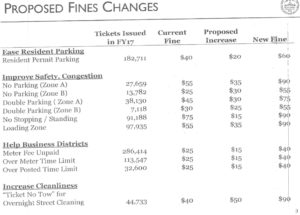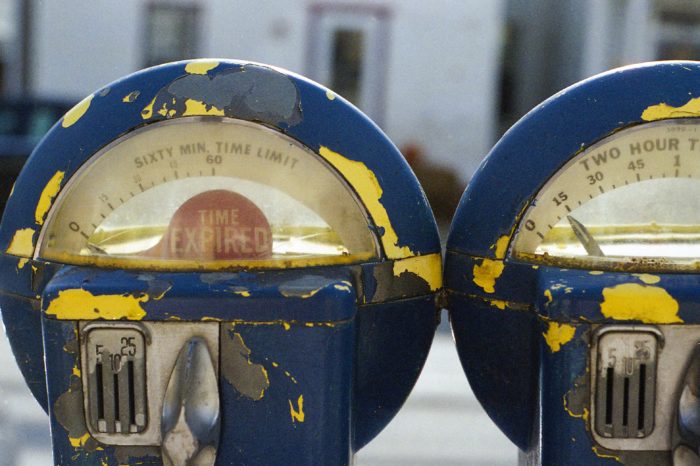Parking Fine Hikes in Boston: a step in Go Boston 2030’s Larger Plan
On July 2, 2018, parking ticket fines in Boston increased substantially. In an attempt to decrease congestion and increase efficiency, the City of Boston hiked the fines for the first time in 10 years.
According to the City of Boston’s website, the increased fines represent those violations that: most negatively impact residents, are most frequently violated, and are a source of traffic congestion and safety issues.
Before this fine hike, many people would not pay the meter (see table below under “meter fee unpaid”). Quite often, it was less expensive for drivers to pay a parking violation than park in private lots or garages.

Source: Patch.com
The city estimated the increased fines will bring $5 million in new revenue targeted towards improving transportation. This is part of the commonwealth’s Go Boston 2030 initiative announced in March of 2017. This long-term plan hopes to improve all facets of transportation in the area.
Go Boston 2030 is undertaking both short- and long-term projects: extending the Green Line; improving transit between the Longwood Medical Area and Jamaica Plain; creating a walking and biking route that parallels the Fairmount Indigo Line; and promoting safe travel for pedestrians, bikers, and drivers. Funding will come from multiple sources such as the city’s capital plan, the MBTA, and MassDOT’s Complete Streets program. These projects aim to reduce MBTA operating expenses and increase ridership. According to MassAnalysis, MBTA operating expenses were nearly $1.5 billion in 2016. The goal of $5 million in new fine revenue will aim to kick start the T’s efforts to make Boston’s public transportation more efficient.
Pioneer’s research suggests a comprehensive plan for an integrated transportation system. Go Boston 2030 is the Commonwealth’s attempt to do so; not only will it attempt to improve transportation agencies’ fiscal condition, but allow different modes of transportation to become more efficient. In the next five, ten, and even fifteen years, it is salient to analyze its progress (just as Pioneer has done in the past) to see if the Go Boston 2030 is on track.
This increase in parking fines demonstrates the city’s efforts to promote safe and efficient driving by deterring people from double parking, or parking in loading zones or fire lanes. Revenue will be put towards the long-term goal to create a more cohesive transportation system that supports the economy, the environment, and the people of Massachusetts.
Amy Tournas is the Roger Perry Government Transparency intern at Pioneer Institute. She studies Government and Global Studies at Colby College.



